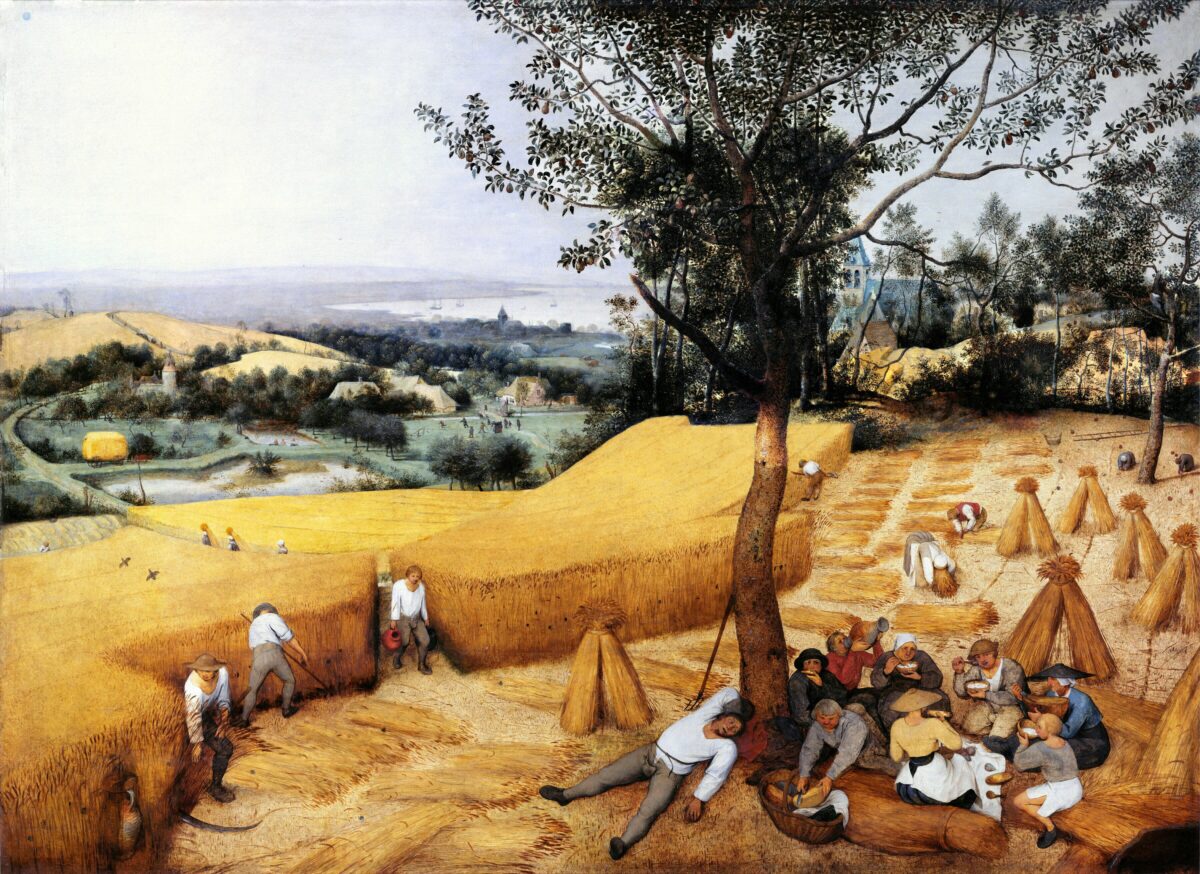Humans lost inches in height when they switched from hunting and foraging to farming, likely due to malnourishment.

When most people think of farmers, a measly or malnourished person is likely not the first descriptor that comes to mind. Recent research, however, suggests otherwise about some of the earliest farmers.
The study, published in the Proceedings of the National Academy of Sciences, found that humans, who lived in Europe about 12,000 years ago, had their height stunted by as much as 1.5 inches after abandoning their hunter-gatherer lifestyles to sow crops in the fields. This, according to researchers, indicates that the population was not healthy or getting the nutrients it needed. The reason for this could be due to a number of factors, such as a less diverse diet compared to hunters, gatherers and foragers. Increased pathogen loads may have also played a role, they say, with human populations being more concentrated and closer to livestock.
The findings include the work and collaboration of more than 40 academics around the world who looked at the DNA and skeletal remains of 167 humans from before, after or around the time when agriculture emerged in Europe.
[RELATED: Early Farmers Changed the Climate (and We’re Still Feeling it Today)]
Lead author Stephanie Marciniak said the study is unique because it considers the additional impact external factors may have on height. DNA and more specific information around genetic ancestry have widely been the topic of interest in recent studies investigating height, she explained.
“We started thinking about the longstanding questions around the shift from hunting, gathering and foraging to sedentary farming and decided to look at the health effect with height as a proxy,” said Marciniak, an assistant research professor at Penn State University’s Department of Anthropology in State College, Pennsylvania.
Approximately 80 percent of height is derived from genetic makeup while 20 percent is from environmental factors, the study said. Research has not yet determined all genetic variants associated with height.
The researchers created a model that factored in adult height, indicators of stress seen in the bones and ancient DNA. The height was analyzed over the period of 38,000 to 2,400 years ago, and remains were categorized based on whether the specimen was alive before the Neolithic age, during the Neolithic age (10,000–4,500 BC), the Copper age (4,500–3,500 BC), the Bronze age (3,300-1,200 BC) or the Iron age (1,200-600 BC). Part of the data collection included skeletal remains that had been already sampled for ancient DNA testing by other researchers conducting additional studies.
Initially, they found that humans from the Neolithic age were on average 1.5 inches shorter than previous individuals and 0.87 inches shorter than the other groups. Height then steadily increased through the Copper age (by 0.77 inches), the Bronze age (by 1.06 inches) and the Iron age (by 1.29 inches).
Findings changed slightly when researchers incorporated genetic ancestral information, which showed some humans inherited height. “There was movement of people, generally from east to west. We wanted to account for that migration that perhaps brought different proportions of height-associated genetic variants,” Marciniak explained.
The height decrease was adjusted with these factors in mind. But the height drop around the start of the era of farming was still evident. Between the pre- and post- Neolithic era, researchers calculated an average height loss of 1.1 inches.
Given that this study worked with only 167 specimens, researchers hope to conduct additional studies with larger datasets. They say this will be necessary to produce stronger conclusions. They also said their model could be applied to other studies to look at additional human health factors over time.
Would probably be best to put in the title “European” ancestors, the study doesn’t look at other areas of the world which might change results. Otherwise, interesting, more questions than answers, like if it affected their nutrients, why did they push through and keep farming?